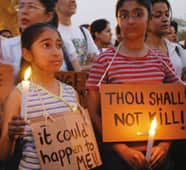Women''s Welfare
Hearing a mother’s tale of her daughter being burnt alive for dowry, will leave very few unmoved. But resilience is one quality that will come in handy when you decide to work in this area.

As Lalitha Nayak, In-Charge, Joint Women’s Programme, asserts, after a lifetime of working closely with sex workers, her goal is to prevent the second generation from following suit.
If you can think long-term, and be content snatching minor and major victories along the way, this sector is the place for you. Skill development is an exciting area to work in as well as promoting micro entrepreneurship.
Both have a faster turnaround time and are for people who are impatient for results and take heart in the fact that this (patience!) is a trait, whose time has come!
Know your domain: A basic awareness of the history of the women’s movement and feminism, is a must. Caste, class and patriarchy, along with understanding colonialism and nationalism, puts women and development in context.
|
This area also comprises aspects such as early marriage, dowry, domestic violence, exploitation, widowhood and maternity and related issues.
Early marriage, maternity, dowry and widowhood broadly need you to understand the institution of marriage. For instance, an unmarried woman might find it difficult to work in sexuality-related areas, as the influenced parties may not feel very comfortable sharing their lives with her.
It is advisable to dress up depending on the group in which you work initially, until you gain their confidence.
Most people working in this area learn hands-on, lessons that you usually gain only after experience in the field. And you will possibly make mistakes during the initial process.
Most courses require practical training, as the work is not easy. Be prepared to handle challenges, stick to the cause no matter what each day brings your way. Put in your best, gain the trust of the group of women you are working with.
Be eligible: Graduation is the usual requirement. Some courses also have an entrance test and interview. Certificate, diploma and degree programmes have different requirements. It’s a good idea to look at the curriculum before you decide.
Job prospects: At the National Commission for Women, your work would involve crisis intervention and follow-ups, in a range of cases, right from dowry to domestic violence. On the other hand, at the the Ministry of Women and Child Development, you could be involved in policy making as well as improving health-related problems at the grassroots level. Simply put, the work varies, based on the profile of the institution. Typically, people choose to work with an NGO, based on the issue they handle. However, some NGOs such as Jagori, tackle multiple issues.
Where to study: The Maharaja Sayajirao University of Baroda offers something unique, a six-week interdisciplinary course in women studies, which offers an overview of the field. You must be a graduate to apply. The course fee is Rs. 300 for students/ NGO workers and Rs. 500 for others. The fee is dependent on the duration as well the kind of program that is on offer. A two-year Master’s in Women’s Studies from TISS would cost you approximately Rs. 58,000, but this course has a higher value.
Entry-level salaries: Indian NGOs would offer Rs. 5,000 approximately, and international NGOs would offer up to Rs. 25,000, per month.
 LALITHA S.A. NAYAK
LALITHA S.A. NAYAK.jpg)
